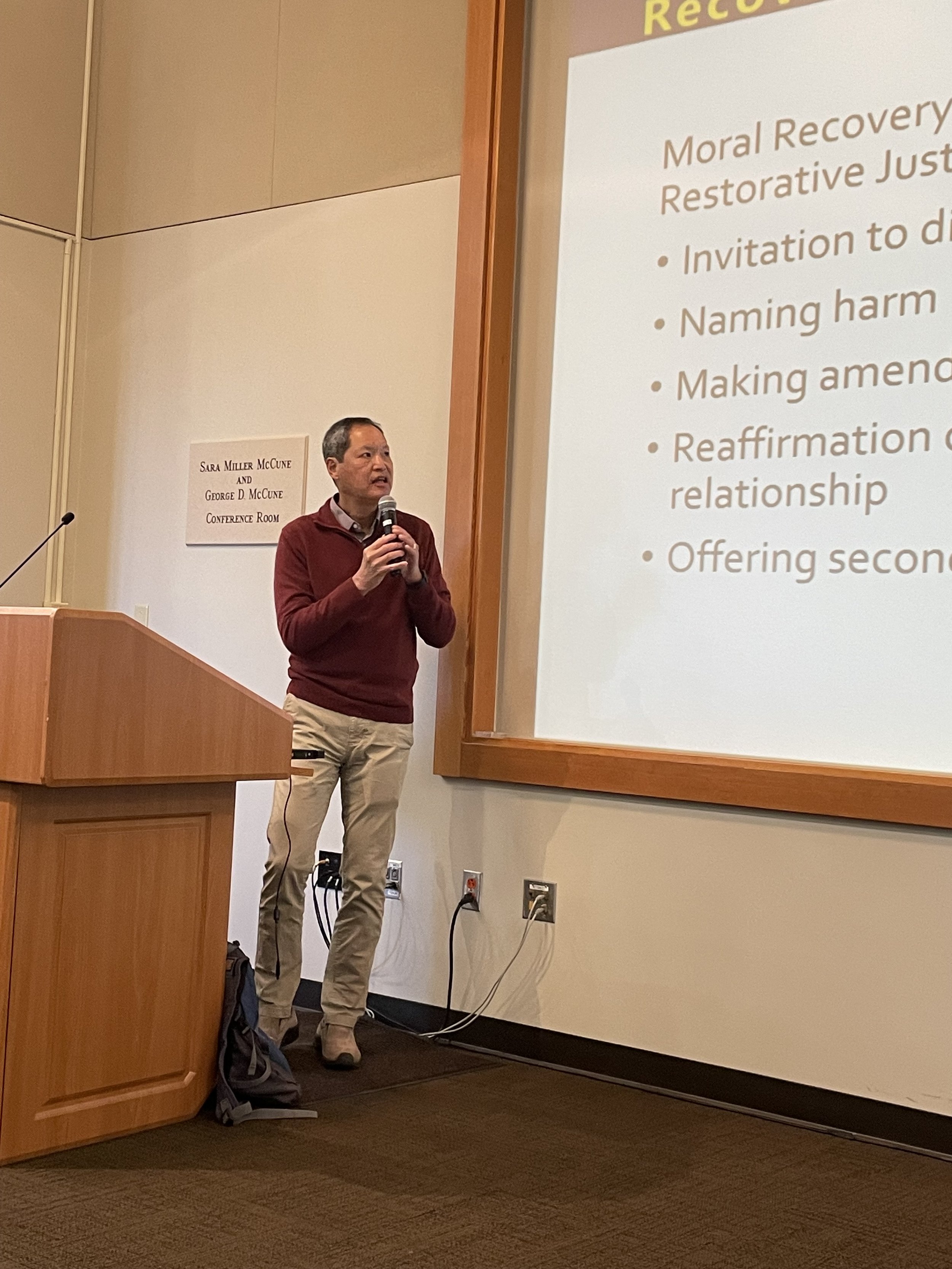By Karli Korszeniewski
During the COVID-19 era, Asian Americans faced an increase in violence and hate, leading to a collective racial trauma that has caused a significant decline in the community’s mental health, says Russell M. Jeung, a professor of Asian American studies at San Francisco State University.
“The problem of racializing went widespread,” Jeung said. “The effects now of the trauma have been growing disasters. Not only have people died, but over 20 studies have reported that Asian Americans’ mental health went down and plummeted because of racism.”
Jeung was speaking in a recent talk titled, Anti-Asian Hate, Racial Trauma, and Posttraumatic Growth, hosted by UCSB’s Walter. H Capps Center, and co-sponsored by the departments of Religious Studies and Asian American Studies. This month is Asian American and Pacific Islander Heritage Month.
Despite the challenges they face, Asian Americans have been able to withstand rising aggression by relying on strong Asian identity, Jeung said.
“In a lot of ways, Asian traditions help people morally reclaim the adversity of racism,” he said. “It helps them take a situation that’s wrong and see it from a different perspective.”
Russell M. Jeung, a professor of Asian American studies at San Francisco State University gave a lecture at UCSB on anti-Asian hate and racial trauma.
Jeung in 2020 co-founded ‘Stop APPI Hate,’ a nonprofit organization that tracks self-reported incidents of violence, harassment, and bias against Asian Americans and Pacific Islanders in the United States, or APPI.
Jeung is also the author of “At Home in Exile: Finding Jesus Among My Ancestors,”and “Family Sacrifices: The Worldviews and Ethics of Chinese Americans.”
He recounted the traumatic story of Noel Quitana, a Filipino man in his 60s, who was racially attacked in February 2021 when he was on his way to work on the New York City subway. The attacker started by pushing him and kicking his bag, then cut Quintana in the face with a box cutter. Jeung said Quintana was in shock and looking for help, and nobody on the subway did anything to help. Quintana had to go to the station booth to ask for aid.
Jeung said that COVID-19 was not only an era of racial trauma but also of moral injury, which he defined as a cultural and spiritual wound in which a person’s core beliefs are violated or betrayed. He finds it important to take moral injury into account as well, since racial trauma tends to highlight the disorder of the individual who needs therapy.
“Moral injury focuses more on the harm reflected on the individual and is also more appropriate because for Asian Americans, not only is this racism, but it is acts against our own moral sensibilities,” Jeung said. “There’s a whole religious and spiritual component to the racism.”
Jeung explained that Asian Americans have had a distinct cultural response to this period of racial trauma and moral injury because these acts of racism go against their moral sensibilities, to be treated in such ways. Its breaks their expectations of America, in a community that prizes the American dream.
He said the ways Asian Americans have culturally responded have been very adaptive and helpful for trauma. Jeung found “flocking,” the act of gathering with friends and family in response to trauma, to be one of the top coping mechanisms among Asian Americans.
Russell M. Jeung, a Capps Center guest speaker, talks about “flocking,” one of the Asian American cultural responses to racial trauma.
“The flocking response, our cultural tradition, is now found to be a protective buffer against trauma symptoms, and you can see the flocking response across the country. After shootings, there are people with vigils or people gathered in rallies to support friends,” Jeung said. “‘AAPI Hate’ received thousands of funds from people holding more nationwide fundraisers.”
The Walter H. Capps Center will be hosting Dina Gilio-Whitaker, an indigenous activist and lecturer at CSU San Marcos, for a talk on indigenous environmental justice, on May 8th.
Karli Korszeniewski is a second-year Film and Media Studies major at UC Santa Barbara. She is a Web and Social Media Intern with the Division of Humanities and Fine Arts.



